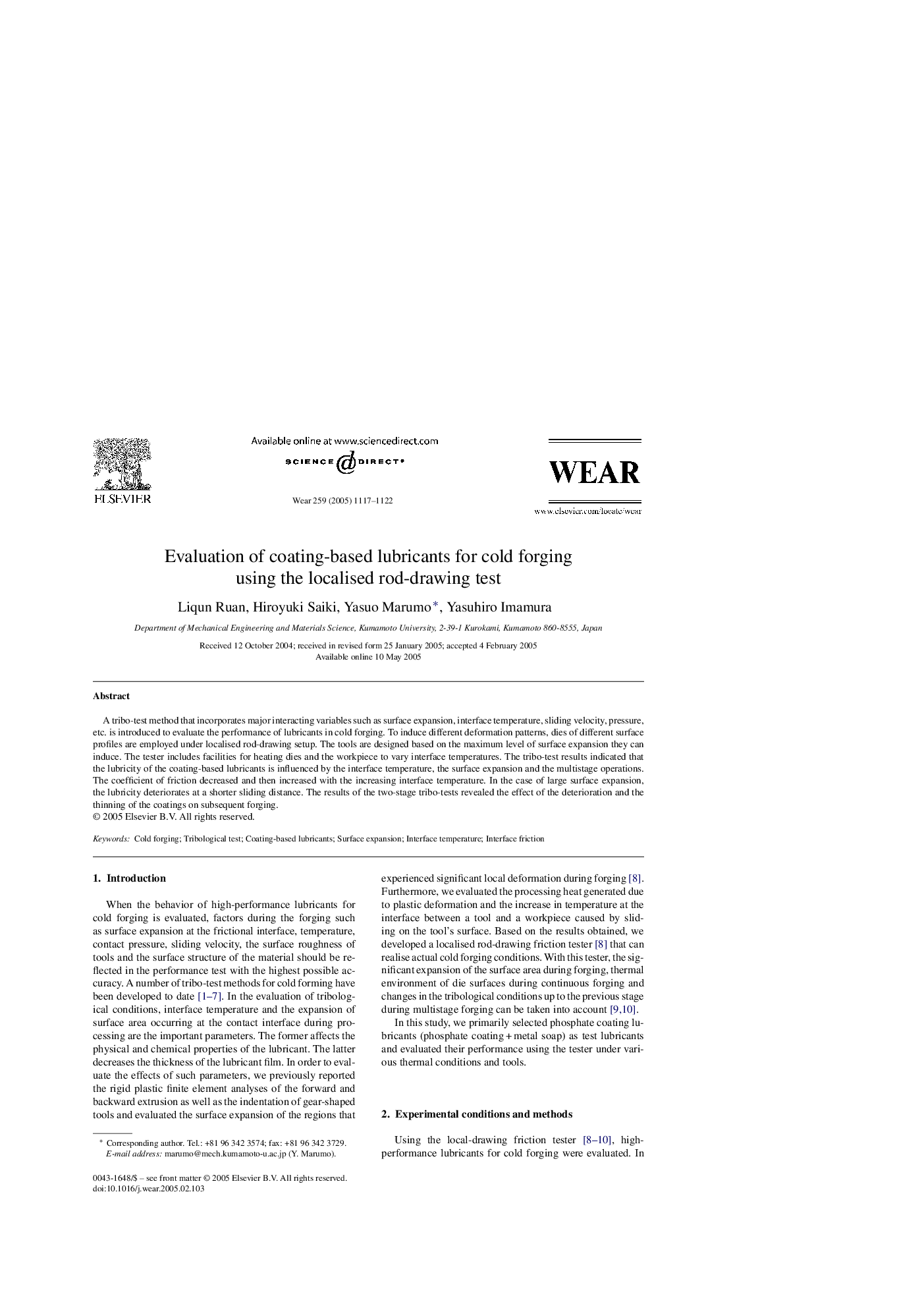| Article ID | Journal | Published Year | Pages | File Type |
|---|---|---|---|---|
| 9679332 | Wear | 2005 | 6 Pages |
Abstract
A tribo-test method that incorporates major interacting variables such as surface expansion, interface temperature, sliding velocity, pressure, etc. is introduced to evaluate the performance of lubricants in cold forging. To induce different deformation patterns, dies of different surface profiles are employed under localised rod-drawing setup. The tools are designed based on the maximum level of surface expansion they can induce. The tester includes facilities for heating dies and the workpiece to vary interface temperatures. The tribo-test results indicated that the lubricity of the coating-based lubricants is influenced by the interface temperature, the surface expansion and the multistage operations. The coefficient of friction decreased and then increased with the increasing interface temperature. In the case of large surface expansion, the lubricity deteriorates at a shorter sliding distance. The results of the two-stage tribo-tests revealed the effect of the deterioration and the thinning of the coatings on subsequent forging.
Related Topics
Physical Sciences and Engineering
Chemical Engineering
Colloid and Surface Chemistry
Authors
Liqun Ruan, Hiroyuki Saiki, Yasuo Marumo, Yasuhiro Imamura,
